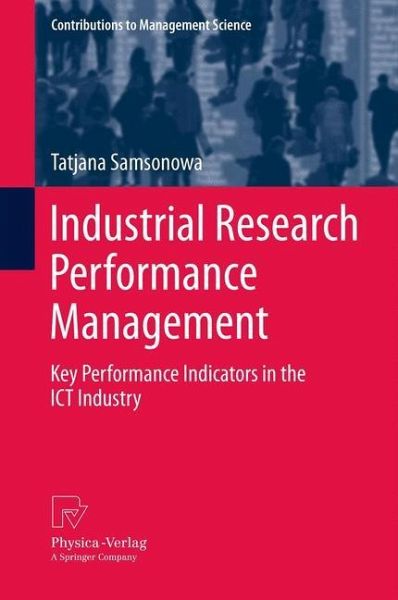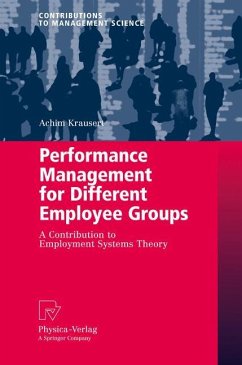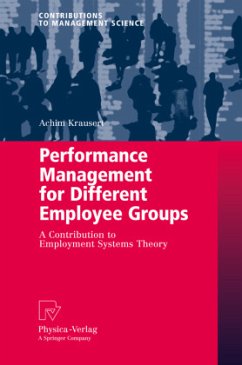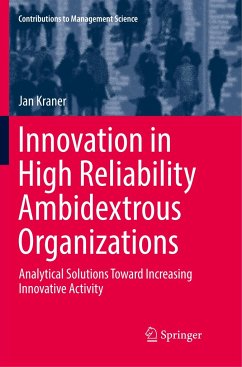
Industrial Research Performance Management
Key Performance Indicators in the ICT Industry
Versandkostenfrei!
Versandfertig in 6-10 Tagen
76,99 €
inkl. MwSt.
Weitere Ausgaben:

PAYBACK Punkte
38 °P sammeln!
Managers are increasingly concerned with the typical methods available for organizational performance measurement and control. Research into performance measurement, within the field of innovation management, has been variously approached through frameworks for performance measurement in general (for example, the Balanced Scorecard by Norton and Kaplan), R&D performance management, and surveys on in-use Key Performance Indicators (KPIs). It is striking, however, thatalmost no research has focused explicitly on the performance measurement of research activities, or indeed tried to develop a sys...
Managers are increasingly concerned with the typical methods available for organizational performance measurement and control. Research into performance measurement, within the field of innovation management, has been variously approached through frameworks for performance measurement in general (for example, the Balanced Scorecard by Norton and Kaplan), R&D performance management, and surveys on in-use Key Performance Indicators (KPIs). It is striking, however, that
almost no research has focused explicitly on the performance measurement of research activities, or indeed tried to develop a systematic approach to setting KPIs for specific research goals.
This work, in co-operation with ABB Research, Deutsche Telekom AG Laboratories, EMC2 Advanced Technology Solutions, IBM Research, Intel Research, Microsoft Research,
Philips Research, and SAP Research, develops a systematic approach to performance measurement for industrial research organizations in innovation-driven companies.
The following questions are addressed:
(1) Which research goals do research departments have?
(2) Which KPIs do they use to monitor the achievement of these goals?
(3) Is there a systematic best-practice approach to selecting KPIs for performance goals?
The outcome is a complete set of eleven performance clusters, such as the transfer of research results to the development or other organizational departments, and each cluster has its own set of KPIs. The eleven clusters are: Technology Transfer, Future Business Opportunities, Technical Achievements, Intellectual Property, Operational Excellence, Talent Pool, Image, Publications, Presence in Scientific Community, Collaboration with Academia, Collaboration with Partners and Customers.
This work led to the creation of the Institute for Industrial Research Performance Management that provides ongoing research and insights for managers of industrial research organizations.
almost no research has focused explicitly on the performance measurement of research activities, or indeed tried to develop a systematic approach to setting KPIs for specific research goals.
This work, in co-operation with ABB Research, Deutsche Telekom AG Laboratories, EMC2 Advanced Technology Solutions, IBM Research, Intel Research, Microsoft Research,
Philips Research, and SAP Research, develops a systematic approach to performance measurement for industrial research organizations in innovation-driven companies.
The following questions are addressed:
(1) Which research goals do research departments have?
(2) Which KPIs do they use to monitor the achievement of these goals?
(3) Is there a systematic best-practice approach to selecting KPIs for performance goals?
The outcome is a complete set of eleven performance clusters, such as the transfer of research results to the development or other organizational departments, and each cluster has its own set of KPIs. The eleven clusters are: Technology Transfer, Future Business Opportunities, Technical Achievements, Intellectual Property, Operational Excellence, Talent Pool, Image, Publications, Presence in Scientific Community, Collaboration with Academia, Collaboration with Partners and Customers.
This work led to the creation of the Institute for Industrial Research Performance Management that provides ongoing research and insights for managers of industrial research organizations.














